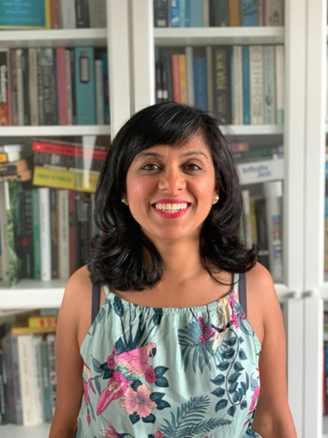
Dr Rizwana Lala is arguably the most left-wing of the remaining four candidates on the shortlist to become Sheffield Central’s next MP. She lives and works in the constituency as a public health lead for the NHS. She’s an active trade unionist and campaigns against the hostile environment within the NHS. She took time out of campaigning to speak to me this week. She told me her parents – who were not originally from the UK, came here looking for a better life. They did factory work, and Rizwana says “They came for a better life for them and their children, they were supportive in terms of school but it was difficult. We lived in overcrowded and unsafe housing, there were four of us sharing a room in a very small house. I did well in school through hard work. It was a very proud moment for me and the family, not just here but abroad as well; did that shape my politics? Yes. I think it’s very important that people have good living standards. It’s really important that schools and universities understand the context in which young people achieve. I’ve worked with universities to widen participation, and also extracurricular things, my view is that people with extracurricular experience of working is just as important as someone who has skills in piano. Those things have shaped my politics, my policies, and my outlook. Really thinking structurally about the barriers people face.”
One of those policies in Rizwana’s manifesto is the mass building of greener council homes. She says the idea is informed by national policy. “I’d fight for funding to come to Sheffield as well. We don’t always get our share so I’d make sure that funding comes to us and council homes are green council homes. When I talk about funding local communities, what I mean is a local democratic economy. Local jobs, local programmes for building, by local builders. I’ll be pushing for local procurement. That needs to be a holistic view with a public health policy that reduces the carbon footprint as well. We need homes that have access to services, like healthcare and access to local jobs in sectors such as retail – in local shops and local businesses.”
Dr Lala also pledges to deliver mental health support in schools and the community. I asked if she thought there was a link between the hardest hit poverty-stricken areas and increased levels of mental health. She says, “The more depravation you have, the more mental health problems you are likely to experience. That is a structural problem. In places like Sheffield, the healthy life expectancy gap between the rich and the poor people is over nineteen years, that’s because of issues like not being able to afford healthy food, living in poor accommodation, and in more polluted areas, and these things don’t only make you physically ill but cause mental health problems too. It’s about driving up living standards – the reason we’re getting an increase in mental health problems is the same reason why we are seeing increases in physical problems. People’s living standards are just so low. Children living in poverty are four times more likely to end up in hospitals with preventable diseases. Things like dental care; because children can’t sleep at night because of tooth ache, they’re doing badly at school as a result and experiencing bullying and that stigma as well. Their parents are often in work but having to take time off and it’s driving people deeper into poverty. Thinking about these structural issues, as a public health person, my focus is on prevention and looking at the long-term prevention of diseases and improving health. First and foremost that means improving living standards for children and that means accessible services within communities and schools.”
Rizwana also promises to widen arts participation and access to under represented children and communities. She said, “For working-class kids, there is a focus on getting a good job to get you out of poverty essentially, but the way we are moving, people need to go to university to get a good job and for that, you need to pay £9,000 and I’d like to see a shift away from that narrative. That’s one of the reasons I support the abolition of tuition fees. Cuts to schools has disproportionately meant the focus is on subjects such as maths and so the first thing to go is arts. If you look at courses at the University of Sheffield, they have a reasonably diverse population of students, but if you’re studying music it will be predominantly middle-class students. The reality is that structurally in this country, it’s very difficult to study music at university level if your parents haven’t paid for some sort of arts lessons either in private school or outside of school tuition. In schools, services just aren’t available for working-class children in arts and it isn’t fair and it’s getting worse because of cuts.
Rizwana says if elected, she will contribute a minimum of 10% of her MP’s salary to local community groups and justice movements. She said the idea was inspired by Nottingham East Labour MP Nadia Whittome, who was elected to Parliament at the age of just 23. As the mother of a young child – still in primary school, Rizwana would certainly incur significant costs when working in London and paying for childcare, but she says “I am inspired by Nadia, she takes a workers salary. It’s really important for me that I’m not earning massively more money than the people in communities that I represent, in terms of how I’m able to understand communities and represent them in parliament.” It has been suggested that the Nottingham MP donates more than half her salary to charities and local causes. Ms Whittome is among several well-known faces endorsing Rizwana’s campaign. Other names include local poet and novelist Rachel Bowler, ASLEF and the Fire Brigade trade unions, and left-wing journalist Owen Jones.